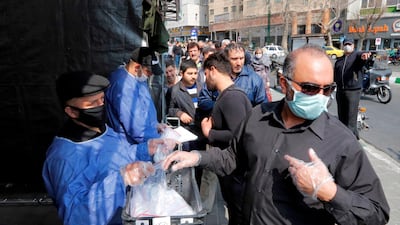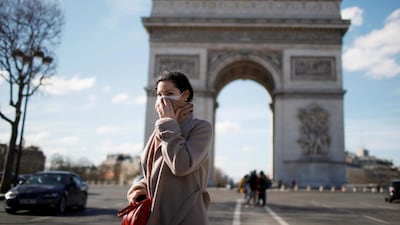The UK government has attracted criticism over its strategy for handling the coronavirus pandemic, part of which includes building up so-called “herd immunity” to the virus.
British health secretary Matt Hancock has rejected claims that herd immunity is part of the government’s strategy, but the country’s chief scientific adviser Sir Patrick Vallance has said that building up widespread immunity to the virus will help the UK.
He also said it would mean 40 million people getting infected with the virus.
The theory is that if enough people become immune to the novel coronavirus – either by successfully recovering from it or by being vaccinated – it will prevent the disease from spreading further and possibly returning again.
Health secretary Matt Hancock has rejected claims that herd immunity is part of the government’s strategy
Jeremy Rossman, a senior lecturer in virology at the University of Kent, told The National: “Infectious diseases, in order to spread through a population, need a certain amount of hosts that they can actually infect.
“If you get to a certain level of immunity throughout the population, then the disease can no longer circulate through the population well,” he explained.
Mr Rossman said it is thought that around 70 per cent of the UK’s population would need to develop immunity to the virus in order to protect the remaining 30 per cent from infection.
The high percentage of people required to become immune reflects the highly contagious nature of the coronavirus.
The new virus is believed to be more transmissible than seasonal flu but less easily passed on than something as contagious as the measles virus.
With measles, around 92 per cent of a population has to be immune in order to protect the remaining eight per cent of people without immunity, Mr Rossman said.
Britain also wants to "delay the peak [of diagnosed infections] and to push the peak down", Sir Patrick said, to prevent the National Health Service from being overwhelmed by moving the peak into the summer months when the health service is less burdened.
"What you want to do is protect people in the most infectious period," he added.
Scientific and medical experts say they are adopting a "staged" approach, not bringing in more stringent measures until the infection rate increases "significantly", which may not happen until a "few weeks" from now.
They say the science of the virus is "broadly agreed" internationally but countries will take different measures to tackle the spread.
The government believes that isolating the population would suppress the virus temporarily but it would then release it back into population and the entire health crisis would be repeated.
"If you completely locked down absolutely everything probably for a period of four months or more then you would suppress this virus," Sir Patrick said.
"All of the evidence from previous epidemics suggests that when you do that and then you release it, it all comes back again."
UK government officials have said that as many as 10,000 Britons may already be infected and that the peak of the outbreak could be in 10 to 14 weeks.














